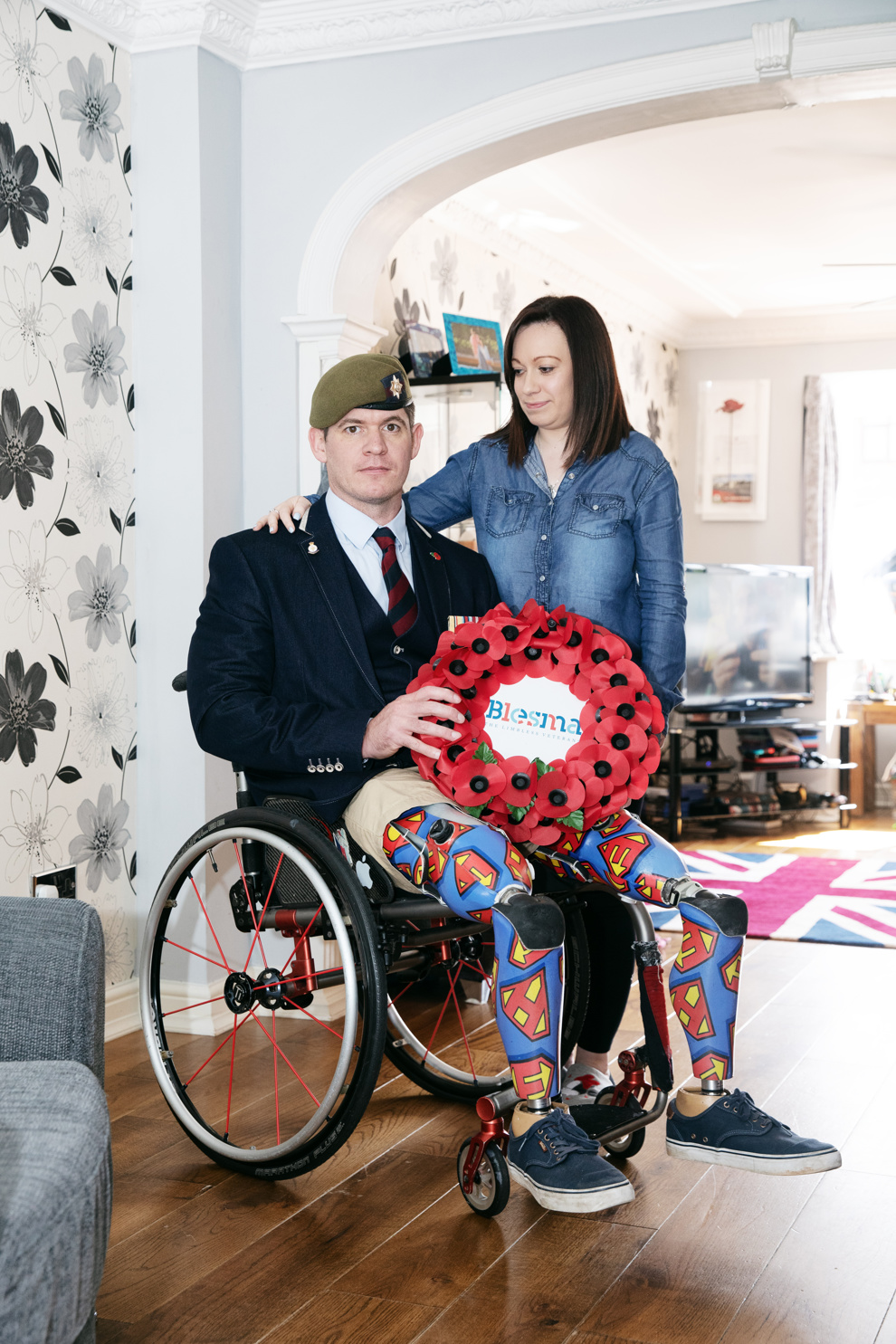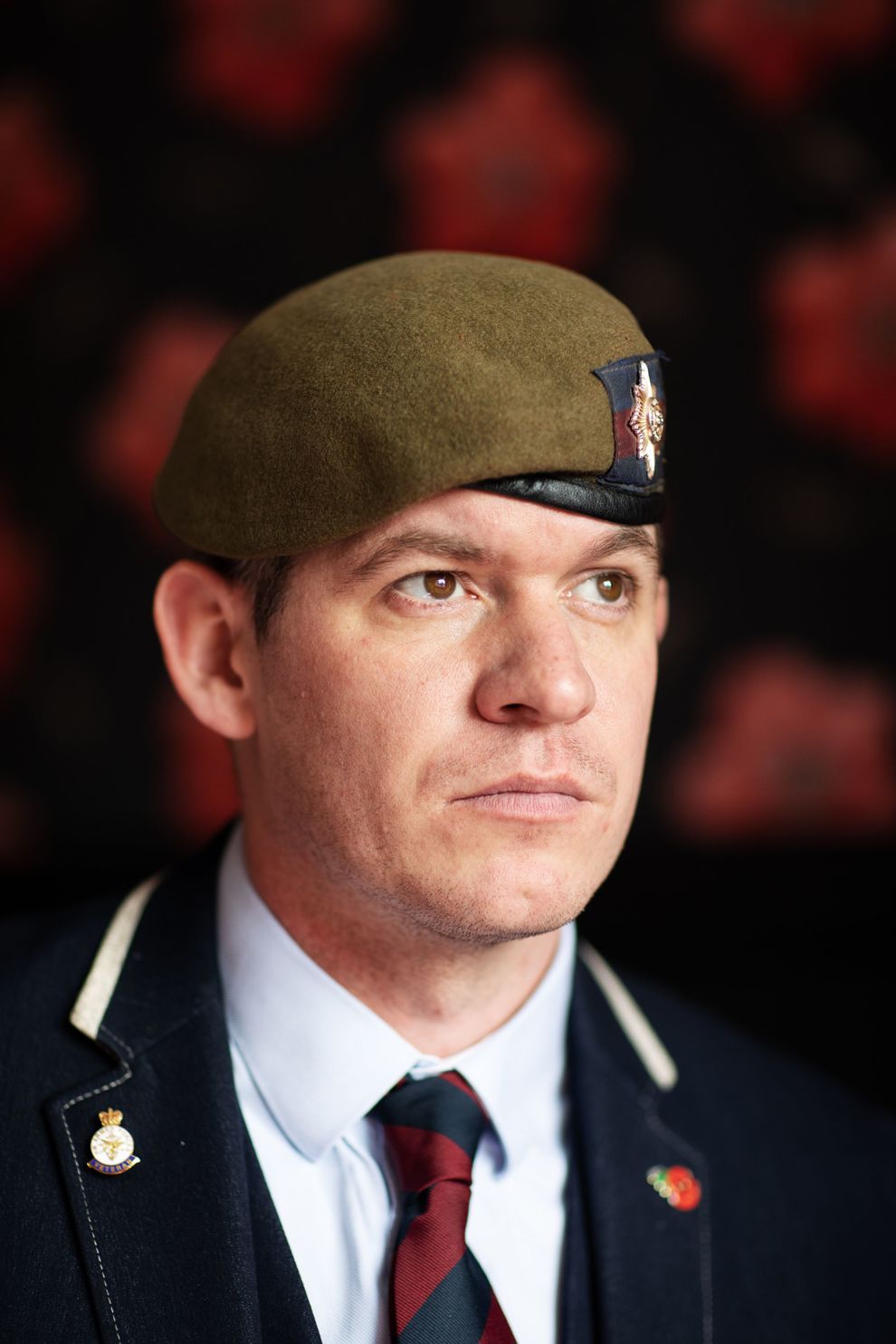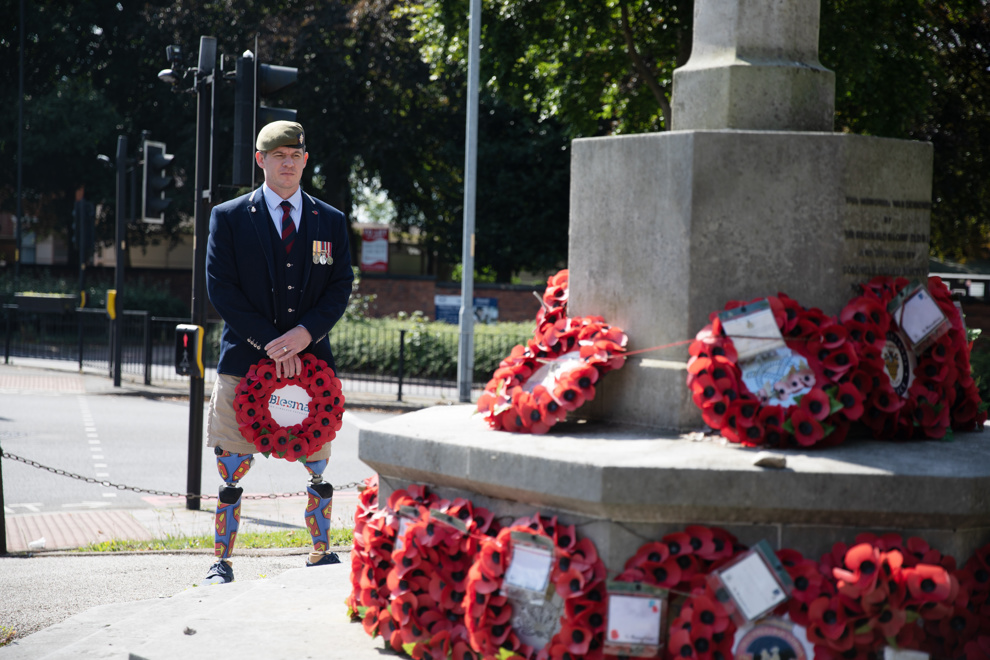Meet Blesma Member Scott Yarrington
Scott Yarrington, 35, from Birmingham, served with the Irish Guards from 2005 to 2013. He was injured by an IED blast in Afghanistan in 2010 which resulted in him losing both legs above the knee, as well as seriously injuring an arm.
Almost a decade after sustaining his life-changing injuries, we caught up with him to talk about rehabilitation, rebuilding his life, and the importance of Remembrance...
Tell us a bit about your military career...
I’d wanted to be a soldier for as long as I could remember – I tried to join up when I was just 15 years old. I eventually walked into a Careers Office when I was 18 and joined the Irish Guards. I enjoyed the training, and after I passed out I was posted to carry out ceremonial duties at Buckingham Palace and the Tower of London, which was great fun.
And then you went on operations?
I deployed to Iraq in 2007, where I worked as a Warrior fighting vehicle dismount and Mastiff driver. We got into plenty of fire fights on the road: one time, our wagons got hit and we suffered two fatalities. I had to drive the bodies to the air base. It was horrible.
I went to Afghanistan in 2010 as a Section Commander. I was there for three months before I was injured. It was completely different from Iraq. We were on foot all the time rather than in vehicles, we were coming under fire on a daily basis, and we had to check the ground with metal detectors before every step because of the threat of IEDs. We took
a lot of casualties.
Can you explain how you were injured?
It was 29 December 2010. I remember that it was a freezing morning and we set off on patrol at about 9am, tasked with giving the Royal Engineers close protection. I took my troops onto a ridge that overlooked a road because we needed to spread out.
As I walked up the hill, I remember my foot sliding, and then hearing a bang. I lost both my legs above the knee at the scene, but I didn’t know that at the time. I looked at my arm and that had been blown open, and my kit had been blasted off me. I tried to call ‘Man Down!’ on the radio, but that had been destroyed. Two young soldiers came to help me. They cut my gloves and trousers off, and made seven tourniquets – because of the nature of my wounds, every time they put a tourniquet on me, I just started bleeding again, higher up. But they did a brilliant job. They saved my life.


And then you were evacuated?
It took a while to get a quad bike up to me. When they did reach me I was conscious, but in incredible pain – every bump in the road felt like I was being stabbed with daggers. I remember being loaded onto the chopper and being in so much pain that I was screaming: “Please put me to sleep!” They did, and I woke up three weeks later in hospital in Birmingham.
What happened next?
I was in and out of the operating theatre at Bastion for three days as they cleaned up all my injuries and tried to stitch me up. They flew me home on a medical plane, and both my lungs collapsed during the journey. Then, in Birmingham, I was in surgery for another 48 hours. When I came round in Queen Elizabeth Hospital I still didn’t know I’d lost my legs.
How did you find out?
When I regained consciousness, my dad was by my bedside. My arm was in a sling, and I asked him if I was going to lose it. He said the doctors didn’t know yet. I asked him if my legs were OK and he said no. I asked if I’d lost one and he told me I’d lost both of them, but I was drifting in and out of consciousness so I kept forgetting and had to ask again. My poor dad had to break the news to me quite a few times.
In the ICU you have your own nurse and she was the person who finally brought home to me the fact that I’d lost my legs. I told her I couldn’t wait to get out and play football with my eldest son and that’s when she said: “You do know you’ve lost both your legs?” That was the first time it hit me. She was distraught. We both broke down crying.
How did you find rehab?
It was tough. The medical team thought I was going to lose my arm, but they told me of an experimental operation they could try. I decided to go for it. My hand was black and covered in crust after the operation, but a week later the crust came off and I could wiggle my thumb. In a few days, all my fingers worked – it was such a relief.
My prosthetics caused some problems, too – the first six weeks were particularly hard. At one point, one of my stumps swelled up and got stuck in the prosthetic. I couldn’t get it off. They had to get the biggest bloke at Headley Court to yank it off while they scraped back my skin.
But things did begin to turn around?
After a while. The injury affected my marriage and we ended up splitting up quite soon after I got out of hospital. Later on, I remarried and had a second son. I was given the Afghanistan Service Medal by Kate Middleton on her first official military duty. She chatted to me for ages and I was in Hello! magazine. I was also part of the team that won the bronze medal in wheelchair basketball at the Invictus Games in 2017, which was amazing.
And you got involved with Blesma...
The Association has been great for me. I’ve taken part in Making Generation R, and I’ve also really enjoyed all the local events that have been organised by my Support and Outreach Officers. I enjoy the Christmas lunches, the days out, all the gatherings and family days. I’ve gone back to college to study maths, English and accounting, and I’ve passed an accounting exam. I volunteer with the Army Cadets, and they are interested in my time in the Forces.
On Remembrance Day, for example, I keep it local. I would like to go to the bigger Remembrance parades some time in the future, but at the moment I feel as though it is important to pass down to the cadets the fact that it is a special day.
Remembrance Day was very different last year. How do you usually mark it?
For me, Remembrance is more important than ever because we need to pass down the tradition as the two World Wars seem a long time ago. On the day, I go to my local cenotaph in all my Irish Guards gear. When it comes to the moment of Remembrance, a lot of things and emotions run through my mind. I think about the friends I lost in Afghanistan and Iraq.
When they play The Last Post, though, I always think of my grandad. He fought in WWII, and they played The Last Post at his funeral. It is very personal and I always get teary. I have a heavy heart on the day, but I’m also very proud, so it’s a real mixture.

Leave a comment
Join fellow Members and supporters to exchange information, advice and tips. Before commenting please read our terms of use for commenting on articles.